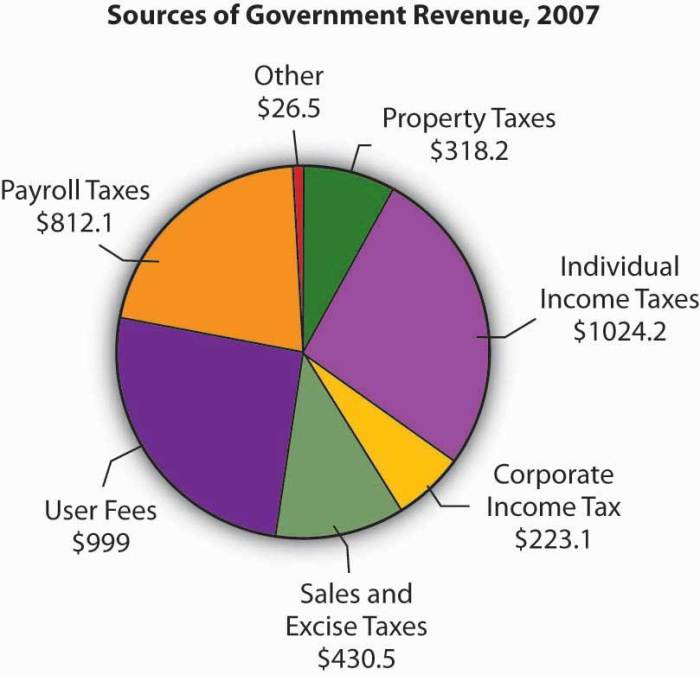
Payroll accounting software has become an essential tool for businesses seeking to streamline their payroll processes and ensure compliance with regulations. This software not only automates payroll calculations but also enhances accuracy, saving valuable time and resources.
In today’s fast-paced business environment, understanding the capabilities and benefits of payroll accounting software is crucial. From improving efficiency to simplifying compliance with labor laws, this technology is pivotal in managing a company’s payroll needs effectively.
Overview of Payroll Accounting Software
Payroll accounting software is an essential tool designed to automate the payroll process for businesses of all sizes. It enables organizations to manage employee compensation, including salaries, bonuses, deductions, and taxes efficiently. With built-in compliance features, this software ensures that businesses adhere to labor laws and tax regulations, significantly reducing the risk of errors and penalties. The primary functions of payroll accounting software include calculating employee wages, withholding taxes, managing direct deposits, and generating payroll reports.
Features such as employee self-service portals allow staff to access payslips and tax documents, while integration capabilities with other accounting systems streamline financial operations. The importance of payroll accounting in business operations cannot be overstated. It not only affects employee satisfaction but also impacts the overall financial health of a company.
Benefits of Using Payroll Accounting Software
Implementing payroll accounting software offers a myriad of advantages for businesses. Firstly, it enhances accuracy and efficiency in payroll management. Automated calculations minimize the chances of human error that can lead to costly mistakes. Secondly, by reducing the time spent on payroll processing, businesses can allocate resources to other critical areas, thereby improving overall productivity. In terms of cost savings, businesses can experience significant reductions in administrative expenses.
The software’s ability to manage various payroll tasks without extensive manual input allows companies to save on labor costs associated with payroll processing.
Key Features to Look for in Payroll Accounting Software
When selecting payroll accounting software, businesses should consider several essential features to ensure optimal performance.
- Automated Tax Calculation: This feature ensures accurate tax deductions based on current regulations.
- Direct Deposit Capabilities: Allowing employees to receive payments directly to their bank accounts enhances convenience.
- Employee Self-Service Portal: Employees can access their payroll information, reducing the need for administrative inquiries.
- Integration Options: The ability to integrate with accounting and HR systems facilitates seamless data management.
- Custom Reporting: Tailored reports help businesses analyze payroll data effectively for better decision-making.
Different features cater to various business sizes and industries. For instance, small businesses may prioritize affordability and user-friendly interfaces, while larger enterprises might need advanced reporting and compliance tools. Software solutions like Gusto, ADP, and QuickBooks Payroll exemplify these features effectively.
Integration with Business Accounting Systems
Payroll accounting software can integrate seamlessly with general business accounting systems, which is crucial for maintaining accurate financial records. This integration allows for real-time data synchronization between payroll and accounting functions, leading to enhanced financial reporting and data accuracy.The impact of seamless integration is profound; it reduces discrepancies in financial reporting and ensures that all departments are aligned with the latest payroll data.
Common accounting software that works well with payroll solutions includes QuickBooks, Xero, and Sage.
Compliance and Regulatory Considerations
Compliance requirements related to payroll processing are critical for businesses to understand. Payroll accounting software assists organizations in maintaining compliance with labor laws and tax regulations by automating tax calculations and generating necessary compliance reports.Best practices for ensuring ongoing compliance using payroll software include regularly updating the software to reflect changes in tax laws, conducting periodic audits of payroll data, and utilizing user training sessions to educate staff about compliance protocols.
Industry-Specific Payroll Software Solutions
Certain payroll accounting software is tailored for specific industries such as agriculture, construction, and healthcare. These solutions address unique payroll needs, providing functionalities like project-based pay calculations for construction workers or compliance tracking for healthcare professionals.Comparing industry-specific offerings with general payroll software solutions reveals that specialized software often offers deeper insights and functionalities suited to the intricacies of each sector, such as union reporting in construction or overtime calculations in healthcare.
User Experience and Accessibility
User-friendly interfaces in payroll accounting software play a vital role in ensuring that employees can navigate the system with ease. Accessibility features, such as mobile compatibility and multi-language support, enhance usability for a diverse workforce, allowing employees to manage their payroll tasks conveniently.Examples of software known for their exceptional user experience design include Gusto and Paychex, which prioritize intuitive navigation and helpful guides.
Cost Considerations and Pricing Models

Various pricing models are available for payroll accounting software, and understanding these can help businesses make informed decisions. Factors influencing the cost include the number of employees, the complexity of payroll needs, and the range of features included.Businesses can choose between subscription-based and one-time purchase options. Subscription-based models often come with ongoing updates and support, while one-time purchases may require additional fees for upgrades and support services.
The Role of Payroll Software in Change Management
Payroll accounting software can significantly facilitate change management within an organization. Features that support training and transition processes for new payroll systems include tutorial resources and customer support options that guide users through the adoption phase.Successful change management stories involving payroll software demonstrate how organizations can adapt to new systems with minimal disruption, often resulting in improved efficiency and morale.
Future Trends in Payroll Accounting Software
Emerging trends and technologies are set to impact payroll accounting software significantly. The potential influence of artificial intelligence and automation could lead to further enhancements in payroll processes, such as predictive analytics for payroll forecasting.Businesses can prepare for future advancements by investing in scalable payroll software solutions and staying informed about emerging technologies that can streamline payroll operations.
Human Resources and Payroll Integration
The relationship between payroll accounting software and human resources management systems is crucial for effective employee data management. Integrated systems improve payroll accuracy by ensuring that employee information is consistent across platforms.Examples of HR software that pairs well with payroll accounting systems include BambooHR and Workday, which enable seamless data sharing and enhance overall HR functionality.
Customer Service and Support for Payroll Software

Customer support plays a significant role in the selection of payroll accounting software. Evaluating the quality of customer service provided by software vendors is essential for ensuring that businesses receive timely assistance when issues arise.Companies known for exceptional customer support in payroll software include ADP and Zenefits, which offer robust support channels and resources for users.
Case Studies of Successful Payroll Software Implementation
Exploring case studies of businesses that successfully implemented payroll accounting software reveals valuable insights. These case studies often highlight the challenges faced during implementation, such as resistance to change or data migration issues, and how these challenges were overcome.Measurable outcomes post-implementation frequently include reduced payroll processing times, improved accuracy, and enhanced employee satisfaction, showcasing the transformative potential of payroll software in business environments.
Entrepreneurial Considerations for Choosing Payroll Software
Startups and small businesses have specific needs regarding payroll software, often prioritizing ease of use and affordability. Entrepreneurs should assess their payroll software options with a checklist that includes features, scalability, and customer support.As businesses grow, scaling payroll solutions becomes essential. Choosing a flexible payroll system that can adapt to increasing employee numbers and evolving needs is critical for sustained success.
Final Conclusion
In conclusion, adopting payroll accounting software can significantly transform how businesses handle their payroll operations, leading to better accuracy, efficiency, and compliance. As technology continues to evolve, staying informed about advancements in payroll solutions will ensure that companies remain competitive and agile in their management practices.
Commonly Asked Questions
What is payroll accounting software?
Payroll accounting software automates the process of calculating salaries, taxes, and deductions while ensuring compliance with labor laws.
How does payroll software improve accuracy?
By automating calculations and reducing manual entry, payroll software minimizes errors and ensures precise payroll processing.
Can payroll software be integrated with other systems?
Yes, many payroll software solutions can seamlessly integrate with accounting systems and HR management platforms to streamline operations.
What pricing models are common for payroll software?
Common pricing models include subscription-based plans and one-time purchase options, each catering to different business needs.
Is payroll software suitable for small businesses?
Absolutely! Many payroll software options are specifically designed to meet the needs of small businesses, providing scalable solutions as they grow.





